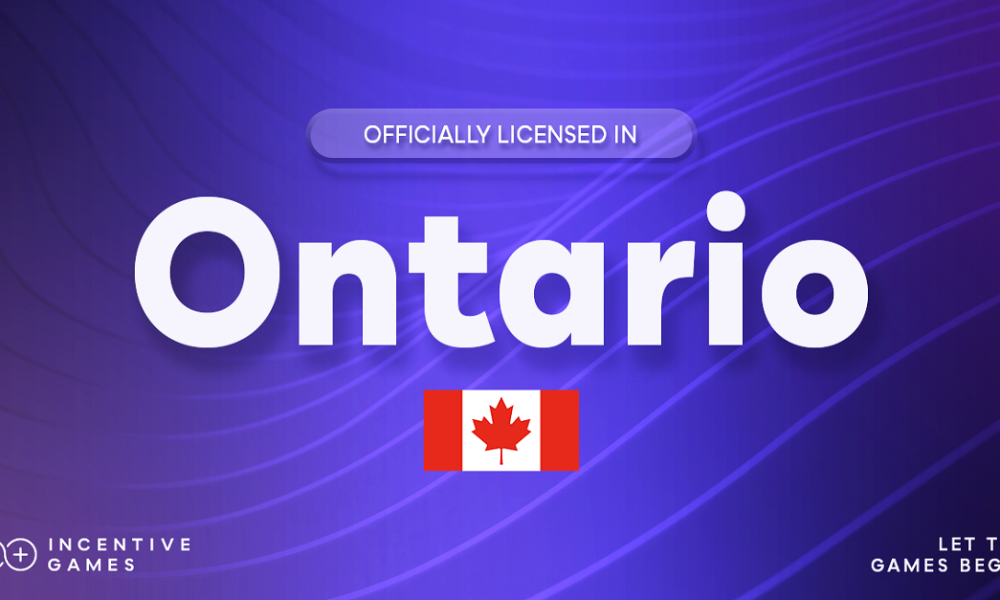

Canada
NGCB: Procedures for Reopening after Temporary Closure Due to COVID-19
On April 21, 2020, the Nevada Gaming Control Board (“Board”) issued a Policy Memorandum related to Procedures for Reopening after Temporary Closure Due to COVID-19. The Board is providing the following additional information to licensees regarding reopening procedures.
1. Internal Audit Procedures: On May 29, 2020, the Board issued Addendum 1 to the April 21, 2020 Policy Memorandum. This addendum granted a waiver to allow certain internal audit procedures, required pursuant to Regulation 6.090(15), for calendar year 2020 to only be performed if a licensee operates an applicable gaming or entertainment area for three consecutive full months or more during 2020. The Board is extending this waiver to allow licensees with calendar business years to reduce the required procedures for table games and slots from a semi-annual requirement to an annual requirement for calendar year 2020. This reduction would include completion of the MICS Compliance – General Walk-through – All Procedures Checklist for both table games and slots.
2. Branch Office Visits: The Internal Audit Compliance Checklist – Branch Offices Walk-Through Procedures requires that “branch offices and/or independent agents that either took possession of more than $500,000 (cash or non-cash) in deposits or collected, in total, more than $500,000 (cash or non-cash) on credit instruments during the previous fiscal year, or more than $500,000 in the fiscal year to date are visited and compliance reviewed at least every other year. Branch offices not meeting the aforementioned $500,000 criteria are visited and compliance reviewed at least once every five years.” Any branch office and/or independent agents that are scheduled to be visited in 2020, based on the preceding criteria, may either be 1) “visited” through video conferencing and online document inspection, or 2) deferred until 2021.
3. In-House Progressive Payoffs: For progressive payoff schedules that were removed from the floor due to the Governor’s Declaration of Emergency – Directive 002 dated March 18, 2020, the time period to either put a progressive payoff schedule back on the casino floor or to distribute the entire incremental amount, pursuant to Regulation 5.110(5), is being extended to October 1, 2020.
4. Extended Business Closures: Pursuant to NGC Regulation 9.010(2), a licensee that ceases gaming “for a period exceeding 1 month” must either surrender their gaming license or obtain authorization from the Board to remain closed for “longer periods.” However, under current gaming regulations, any such authorization “will not permit closing for an entire calendar quarter.”
Generally, the Board will interpret Regulation 9 to contemplate closures that are within the control of the gaming licensee. Accordingly, the Board will not include periods of mandatory closure when determining the applicability of NGC Regulation 9.010(2). Therefore, the Board will calculate the “period exceeding 1 month” to commence June 4, 2020, the date that gaming licensees were permitted to reopen. Thus, a licensee that has not resumed gaming on or before July 6, 2020 must either surrender their license or request authorization from the Board to remain closed for a longer period. To request an extended closure, a licensee must submit the request to [email protected] by July 6, 2020. Any questions concerning this matter should be directed to the Board’s Tax and License Division at (775) 684-7770.
AGCO
INCENTIVE GAMES SECURES ONTARIO GAMING LICENSE

Incentive Games, a leading B2B games provider, is proud to announce that it has been awarded an Ontario Gaming License by the Alcohol and Gaming Commission of Ontario (AGCO), effective today. This achievement enables the company to offer its portfolio of real-money games to licensed operators and players across the province.
The license underscores the Incentive Games’ commitment to meeting the highest standards of compliance, security, and operational excellence. The rigorous application process demands robust security protocols and comprehensive responsible gaming measures and affirms the company’s readiness to enter one of Canada’s most dynamic iGaming markets.
The North American market is a strategic focus for Incentive Games, and this milestone follows closely on the heels of the company receiving its Provisional Michigan gaming licence from the Michigan Gaming Control Board earlier this month.
Incentive Games will distribute its real-money gaming content in Ontario through Incentive Studios, the company’s dedicated Real-Money Gaming division, ensuring a focused and tailored approach to the market.
“Ontario represents a huge opportunity for us, and securing this license is a proud moment for the whole team,” said John Gordon, Chief Executive Officer at Incentive Games. “It reinforces our dedication to meeting the highest standards while delivering compelling real-money content. We’re looking forward to building strong relationships in the region and continuing our momentum across regulated markets worldwide.”
The post INCENTIVE GAMES SECURES ONTARIO GAMING LICENSE appeared first on Gaming and Gambling Industry in the Americas.
AGLC
AGLC Announces New Board Chair

Alberta Gaming, Liquor and Cannabis (AGLC) has announced the appointment of Larry Spagnolo as the new Board Chair, effective August 15, 2025. This announcement follows the official Order in Council issued by the Alberta Government and marks a new chapter in AGLC’s ongoing commitment to support communities, encourage responsible choices and position Alberta as the best place to do business.
Larry brings a wealth of experience in technology and business leadership to the AGLC Board and will play an integral role in guiding AGLC’s strategic direction. He is currently serving as VP and GM of Emerson’s SaaS SCADA business and has held senior roles at Zedi and Telus, driving innovation, growth, and global success.
A strong advocate for education and community, Larry serves as Vice Chair of Athabasca University’s Board of Governors and has held board roles with NAIT and Polytechnics Canada. He was awarded the King Charles III Coronation Medal for his community contributions.
AGLC and the Board of Directors extend their heartfelt thanks to Len Rhodes for his leadership and dedication as Board Chair since August 2019. He decided not to seek a third term and will continue to serve in this role until August 14, 2025. Len led AGLC through some significant milestones, including reducing red tape by 51%, growth of the emerging cannabis industry and ensuring AGLC delivered a balanced approach to business development, social responsibility, and regulatory oversight.
The post AGLC Announces New Board Chair appeared first on Gaming and Gambling Industry in the Americas.
Bonus Guardian
Pinnacle Ontario live with CasinoEngine in North America debut

EveryMatrix has expanded its partnership with tier-1 operator Pinnacle powering its new casino in Ontario, Canada, using CasinoEngine platform technology – the first time its platform solution has gone live in North America.
The latest agreement builds on the two companies’ previous collaboration that saw EveryMatrix’s CasinoEngine productivity platform power the well-known brand’s global casino offering.
The new launch takes the relationship to North America, marking EveryMatrix’s debut CasinoEngine platform integration in that market.
BonusEngine, EveryMatrix’s cross-vertical bonusing tool will be integrated in the second phase of launch. This will equip Pinnacle Ontario with a host of bonus types as well as AI-powered bonus abuse solution Bonus Guardian.
BonusEngine is the first of multiple engagement tools from EveryMatrix’s EngageSuite that Pinnacle plans to integrate.
With this comprehensive toolkit at its disposal, and the opportunity to add even more casino products in the future, Pinnacle Ontario can tailor campaigns, segment audiences, and reward players more effectively, creating a world-class digital entertainment experience for its customers.
EveryMatrix has more than 300 global customers and holds North American licences in Ontario, New Jersey, Michigan, West Virginia, Connecticut and Pennsylvania.
Stian Enger Petersen, CEO, Casino, EveryMatrix, said: “This launch marks a key milestone for EveryMatrix as we bring our market-leading CasinoEngine platform to Canada for the first time.
“We’re delighted to expand our partnership with Pinnacle and support their ambitions in Ontario with a powerful combination of platform, content, and engagement tools that are proven to drive success.”
The post Pinnacle Ontario live with CasinoEngine in North America debut appeared first on Gaming and Gambling Industry in the Americas.
-

 gaming3 years ago
gaming3 years agoODIN by 4Players: Immersive, state-of-the-art in-game audio launches into the next generation of gaming
-
EEG iGaming Directory8 years ago
iSoftBet continues to grow with new release Forest Mania
-
News7 years ago
Softbroke collaborates with Asia Live Tech for the expansion of the service line in the igaming market
-
News7 years ago
Super Bowl LIII: NFL Fans Can Bet on the #1 Sportsbook Review Site Betting-Super-Bowl.com, Providing Free Unbiased and Trusted News, Picks and Predictions
-
iGaming Industry8 years ago
Rick Meitzler appointed to the Indian Gaming Magazine Advisory Board for 2018
-
News7 years ago
REVEALED: Top eSports players set to earn $3.2 million in 2019
-
iGaming Industry8 years ago
French Senator raises Loot Boxes to France’s Gambling Regulator
-
News7 years ago
Exclusive Interview with Miklos Handa (Founder of the email marketing solutions, “MailMike.net”), speaker at Vienna International Gaming Expo 2018










